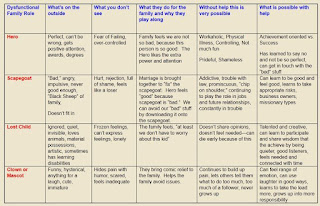CHRIST IN WINTER: Reflections on Faith & Life for the Years of Winter
I knew a man, I’ll call him Ron. When he was in his 50s, the sister of the wife of one of one of his sons came to him with a problem. She was a young wife and mother whose spending had gotten out of hand. Unknown to her husband. She had credit card bills that had reached, in today’s terms, about $60,000. Ron was not wealthy, but he was relatively affluent, and he was the only person she knew who might be willing to help her. Sister of an in-law is pretty far out in the family circle, but he loaned her the money. At least, Ron thought it was a loan. She paid off the bills and never said another word about it to him, never paid a dollar back, to this day. Was he a sucker? No, he was just a Hero. That’s what happens to the Hero in a family.
In family systems theory, the Hero is the one the family expects to be dependable, and the one the family puts out in front when it wants the world to think it is better than it is. The Hero is the face of the family to the outside, and the one the others turn to in times of trouble on the inside.
Churches and organizations have many characteristics in common with families. All the churches I pastored looked much better to the world outside than they did from the inside because they had Heroes like Earl and Jane and Rose Mary and Grace and Maurice and Scott and…
I belonged to a national professional association of clergy. The year Gary was president, he said to me, “When we want to impress potential members, we put you out front.” A clear Hero definition. I was pleased, but also terrified. Being a Hero carries a lot of responsibility. The Hero has to be better than s/he is in order to make the family/organization look better than it is.
I was the Hero of my family, although I never understood that until my cousin, Nancy, told me that I was the Hero. Nancy was a PhD professor of education and taught family systems. Until Nancy, I thought I was a sucker--the son/grandson/nephew who loaned money and took care of the old folks. It was nice, at first, to think of myself as a Hero instead of a chump.
I was the Hero by default,
because I was the first male grandchild on either side of the family, when
being first and male [primogeniture] was still important culturally if not
legally. More important than it should have been. There were several older
girls, including my sister, Mary V, who would have been perfectly good Heroes,
but I got stuck with it just because of a Y chromosome.
Nancy had more than the Y
chromosome in mind, though. She said, “I always knew you were the Hero.”
By total coincidence, her mother, my Aunt Jeanetta, played cards with Helen’s
mother, in a town far, far away from where I grew up. When Helen began to tell
her mother about the boy she was dating at college, Georgia said, “Oh, good
grief. I already know about him. Jeanetta talks about him all the time, what a
nice boy he is.” Despite the image here, Helen is not an alcoholic. She is, however, an enabler, in the sense that she has always supported me. Heroes need support, too.
When you are the Hero, you realize quite early that you are expected to be a nice child. Your relatives don’t want to explain some juvenile scoundrel to their friends. You don’t get to do all the naughty stuff that folks wink at in other kids. Nobody ever includes you in “boys will be boys.” Are you a sucker? No, just a Hero.
You have/had a role in
your family. Every member of the family has a role. You might find yourself here…
Hero is not a better role than the others, just different. But as I look at it now, I find that it was a good role for me, because it made me into a better person than I would have been. Some people live a good life just because it’s the best thing to do. I got to enjoy living a good life because folks I love expected me to. It’s worth being a Hero to get to live a good life.
John Robert McFarland





No comments:
Post a Comment